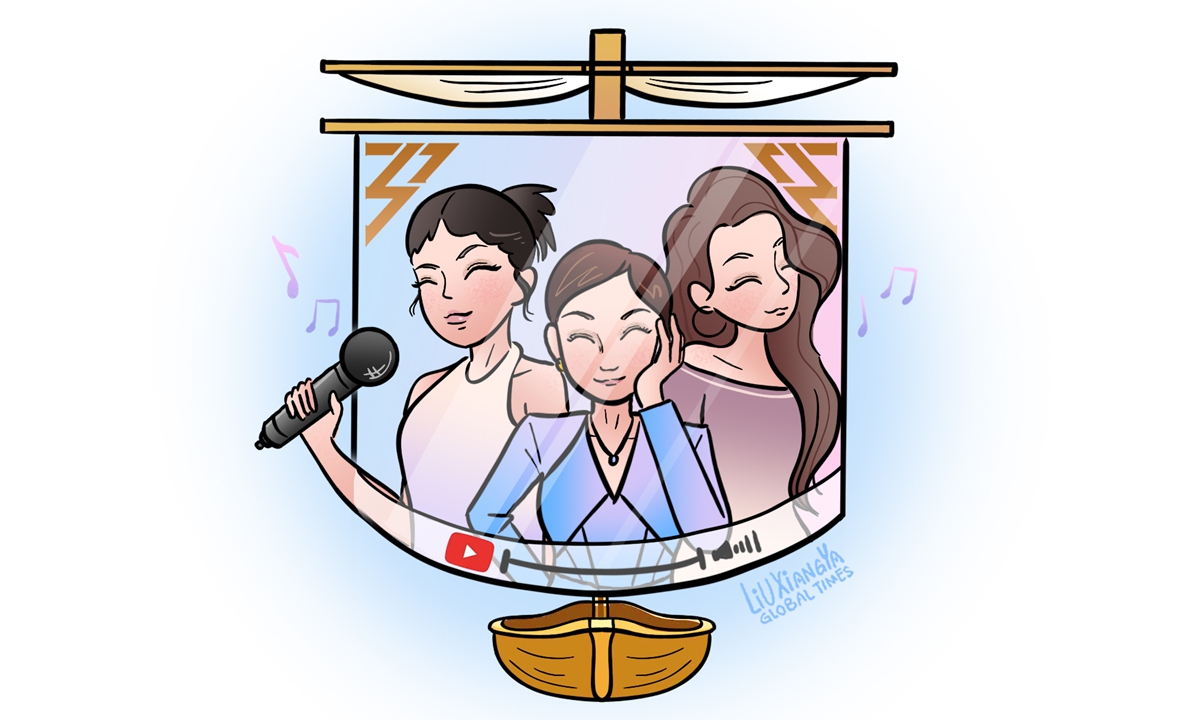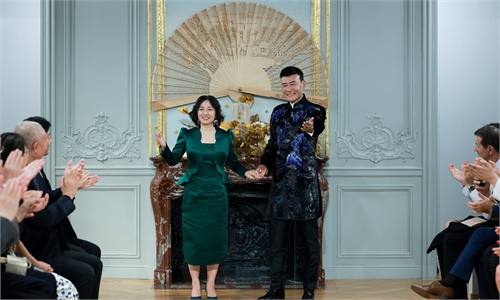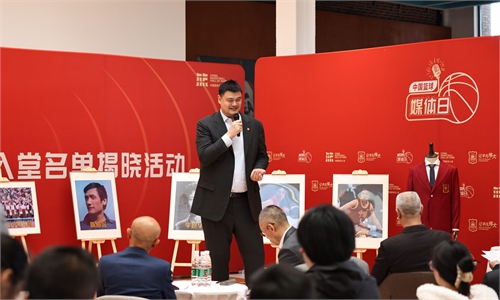ARTS / CULTURE & LEISURE
China's micro-drama craze shows potential of 'sheconomy' abroad

Illustration: Liu Xiangya
The recent boom of Chinese micro-drama platforms abroad, led by ReelShort, marks a notable development, with app downloads even surpassing TikTok. A recent survey shows that a majority of app users were female, reflecting the powerful "sheconomy" not only in China but overseas.
Micro-dramas, typically played on mini-programs or social platforms, are brief, lasting only a few minutes per episode and often ending with a cliffhanger or twist. The first few episodes are usually free to attract viewers and later episodes in which the storyline unfolds usually adopt a pay-per-view model.
ReelShort's popularity in North America can be attributed to its introduction of short-form, easily addictive "feel-good" dramas, seamlessly adapting Chinese popular online literature tropes like "dominant CEO falls for me" and "sweet revenge" to a Western setting. This has proven to be a successful strategy in attracting foreign viewers.
The platform's straightforward black interface, reminiscent of streaming giant Netflix, along with meticulously crafted posters and attractive casts of good looking actors, creates an irresistible allure, effortlessly drawing users into various trending genres.
ReelShort's success lies not only in its superior production quality but also in its localization efforts, tailoring actors, dialogue, and scenes to resonate with overseas audiences. Particularly in English-speaking countries deeply influenced by Hollywood, ReelShort ventures beyond international themes like "dominant CEOs" and "revenge" to offer locally popular themes such as "vampires" and "werewolves." The hit series Fated to My Forbidden Alpha exemplifies this strategy, following the successful path of Hollywood hits like the Twilight saga.
A closer look at current overseas short drama platforms reveals a prevalence of female-centric works, with themes like werewolf romances, aristocratic marriages, and mafia revenge dominating the landscape, while due to the absence of large-scale male-oriented web novel platforms abroad, there are relatively few male users on micro-drama platforms overseas.
Survey data highlights that these overseas micro-drama apps attract a predominantly female audience, with 70 percent of the total being women. Additionally, 48 percent of users are over 45 years old, and 39 percent fall in the 25 to 44 age group, aligning with the target demographic for these "feel-good" dramas.
The data shows that micro-dramas, emerging from Chinese social media and introduced overseas, has achieving surprising results, and this also shows the huge potential of "sheconomy."
The concept of the "sheconomy" reflects the unstoppable increase in female consumption and serves as a crucial foundation for producers and content creators alike.
The success story in Vietnam of the adaptation of Sisters Who Make Waves further emphasizes the global appeal of female-orientated content. Chi Pu, a Vietnamese star, gained rapid fame through Chinese streaming platform Mango TV's Sisters Who Make Waves with her exceptional singing and dancing abilities, showcasing the program's massive overseas influence.
Released on VTV3, a state-owned Vietnamese television channel, in October, the Vietnamese version of Sisters Who Make Waves brought together top Vietnamese female artists. The variety show's Vietnamese adaptation secured the top spot in ratings, breaking records for sponsorships with 33 sponsors. Following its broadcast, the related video content surged to the second spot on YouTube's popular charts in Vietnam, capturing the enthusiasm and praise of the Vietnamese audience.
The rise of the "sheconomy" is evident not only in China but also internationally. While foreign film and television insiders recognizes the "sheconomy" contribution to China's rapidly recovering box office, which in 2023 broke the 50 billion yuan ($6.99 billion) in November, there's a growing realization that this phenomenon is also taking root in other countries.
Hollywood appears to have caught wind of the business opportunities. After films like Everything Everywhere All at Once won seven awards at this year's Oscar, Chinese warm-hearted comedy film Hi, Mom captured Hollywood's attention and is now being adapted into its new version. As the "sheconomy" continues to rise globally, it might make a new wave in the entertainment industry landscape.
The author is a reporter with the Global Times. life@globaltimes.com.cn





